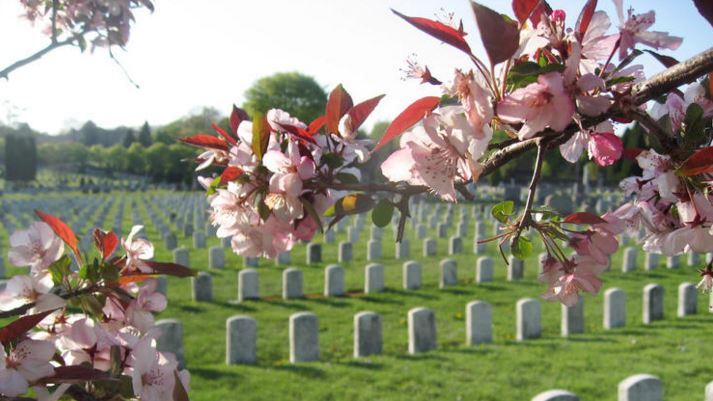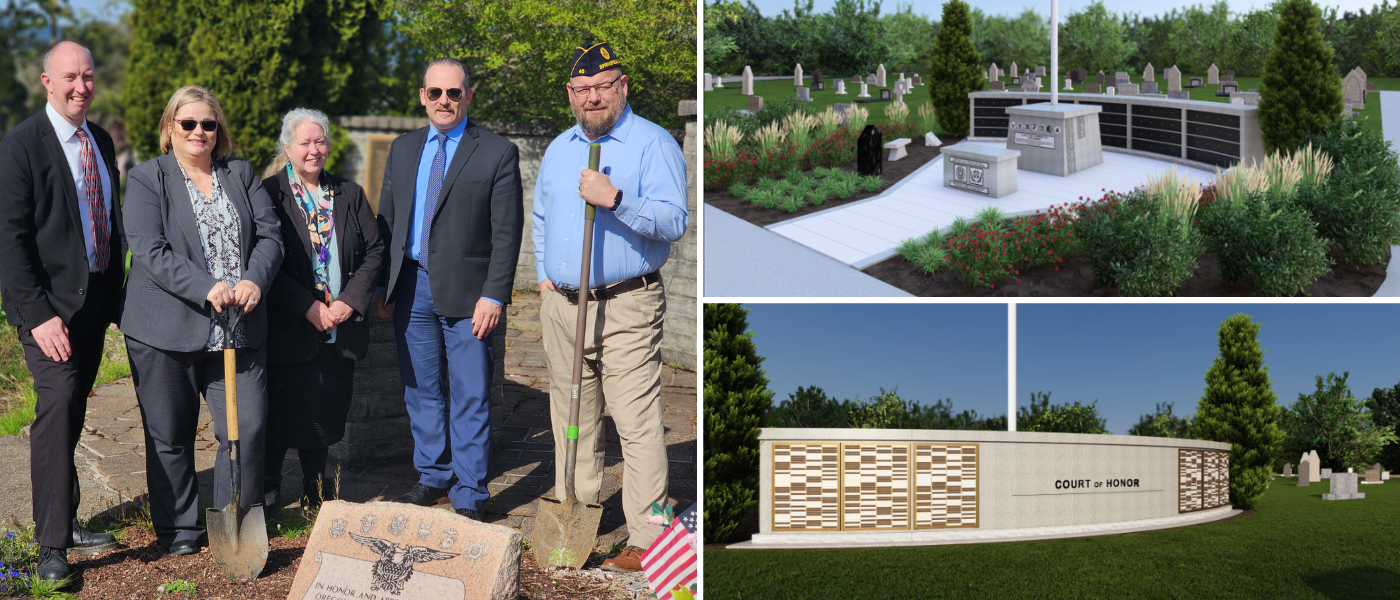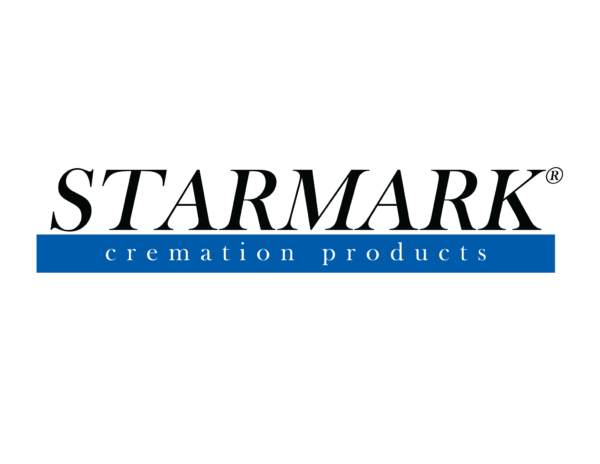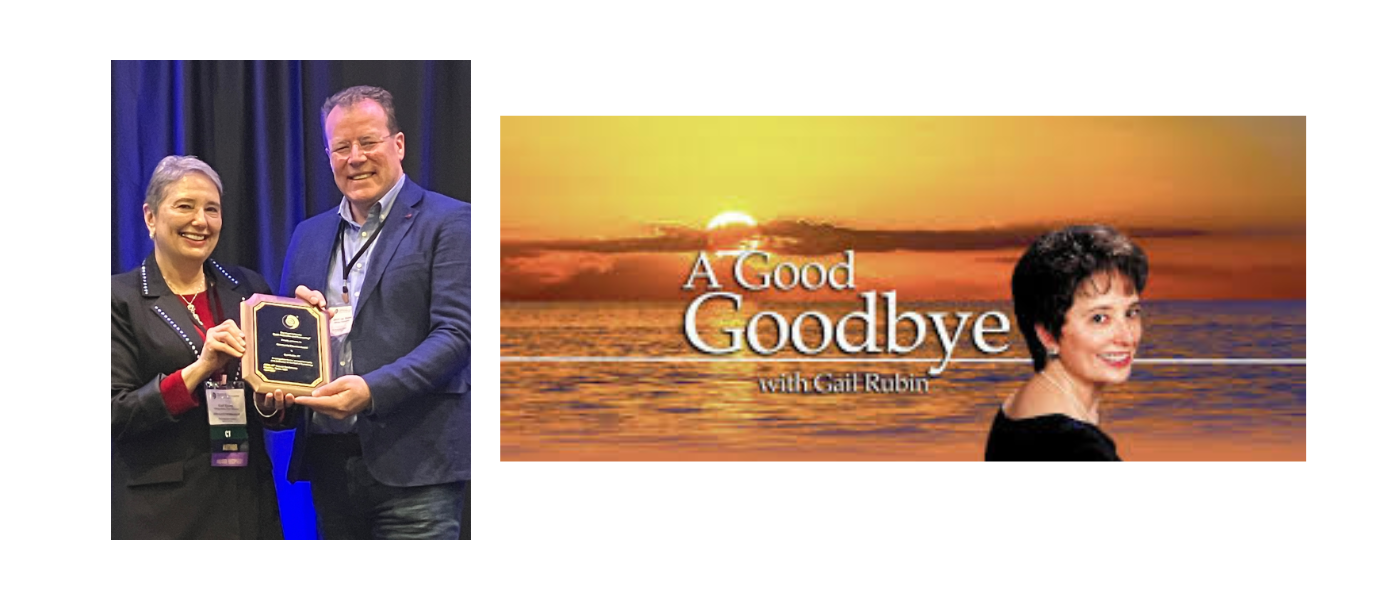Pre-Planned Cemetery Sales Could Soon Be Illegal In Pennsylvania
Article originally appeared on The Morning Call
HARRISBURG — For about 18 months, lobbyists have passed through the state Capitol and interest groups have paid their financial respects to campaign accounts in an effort to influence votes on two bills.
The bills — ushered through the Legislature by Republican Sen. Robert “Tommy” Tomlinson, who owns a Bucks County funeral home — have nothing to do with education or taxes.
They have to do with another constant in everyone’s life: death.
Funeral directors and cemetery operators are on opposite sides of the bills, which would amend a 53-year-old law regulating Pennsylvania’s $698 million funeral services industry.
Traditionally, funeral homes earn most of their money on casket and other sales at the time of someone’s death. Sales made from pre-planned funerals, which people pay well in advance of their deaths, are a smaller piece of the revenue.
Cemeteries, on the other hand, make most of their money when people pre-plan their funerals by picking out a plot, grave marker, casket and vault, which is the concrete box that protects the casket and keeps the ground from settling.
The bills, in the House and Senate, would effectively eliminate the pre-planned sales cemeteries have relied on for revenue and profit. They would restrict how cemeteries — but not funeral homes — handle inventory by not allowing them to warehouse vaults and caskets, and how they count sales proceeds and handle refunds.
Casket and vault sales account for more than $200 million of the total annual gross revenue generated by Pennsylvanians who opt to bury their loved ones’ bodies instead of cremating them. With so much revenue up for grabs, the stakes are high for consumers and the two sides in the legislative battle.
The bill’s critics, including the Federal Trade Commission, say the changes could be bad for consumers, who tend to save money by hedging against inflation to buy caskets and vaults in advance.
The bills’ supporters include the state Funeral Directors Association — of which Tomlinson, owner of Tomlinson Funeral Home in Bensalem Township, is a member. Tomlinson co-sponsored the Senate bill, even though his business stands to make significantly more revenue each year if it passes.
The bills do not regulate how cemeteries conduct sales. But supporters say they would save grieving families from overzealous cemetery sales teams — particularly what they say are the aggressive new managers of 13 Catholic Archdiocese of Philadelphia cemeteries. Under the current system, cemeteries can pre-sell and warehouse caskets and can plant vaults in the ground, fattening their financial bottom line by claiming they already delivered the product to the consumer.
The state Cemetery Cremation and Funeral Association and FTC see the bills as impediments to free-market competition. They say there’s no evidence of serious sales problems and the proposed changes are so drastic cemeteries would be forced out of the pre-need sales business, which would create a monopoly for funeral homes that, in turn, could lead to higher costs for consumers.
The association argues that if the bills went into effect and their fears came true, funeral homes would be the big winners because they would capture the bulk of the casket and vault sales, which average about $3,722 per burial, industry figures show.
Though Tomlinson Funeral Home stands to benefit, there is nothing in state law or the rules of the Legislature that would prevent Tomlinson from voting for the change. Still, he asked for and received permission to vote on the matter — as he is required by Senate rules and state ethics rules to do — from the lieutenant governor, who presides over the Senate.
In interviews, Tomlinson, majority chairman of the Senate Consumer Protection & Professional Licensure Committee, downplayed his involvement in the bills, noting he is not the lead sponsor.
He has warned lawmakers he will not run certain bills out of his committee until his counterparts in the House Consumer Affairs Committee pass the cemetery bill, a source said. As a result, two water companies, which have no connection to the funeral industry, are lobbying the House to approve the cemetery bill so their bills, already approved by the House, get a fair shake in the Senate, that source said.
Tomlinson said he “absolutely” was not advocating for the cemetery bills to help the business his father started in 1945, he bought in 1975 and his daughter will be taking over. He also denied holding up any bills as leverage.
Rep. Robert Godshall, R-Montgomery, chairman of the House Consumer Affairs Committee, declined to comment, saying he did not want the situation to get worse for the Legislature.
Ethics and money
This is the second time in as many years bills have been floated to change the 1963 Cemetery & Funeral Merchandise Trust Law. The first attempts, in the 2013-14 legislative session, failed.
This time around, a Senate bill sponsored by Sen. Tom McGarrigle, R-Delaware, and seconded by Tomlinson, was passed out of Tomlinson’s committee June 30. After amendments were added, the Senate approved the bill in October.
The bill now sits in the House Consumers Affairs Committee, which held a hearing on it in January but has not acted on a similar House bill introduced in the summer.
Before each vote, Tomlinson publicly announced his ownership in the funeral home, Senate records show. Democratic Lt. Gov. Mike Stack, who presides over the Senate as president, then allowed him to vote.
The decision to let Tomlinson vote is rooted in two state Ethics Commission rulings and the Senate’s own decree.
Both ethics rulings removed lawmakers from the 1978 Ethics Act’s conflict-of-interest rules when it comes to debating, lobbying and voting on legislation. A Senate rule states lawmakers must disclose a conflict and then vote, after a ruling from the lieutenant governor. If a senator is cleared to vote, the Senate does not allow abstention.
Tomlinson followed those procedures.
Drew Crompton, Senate Republican Caucus’ chief lawyer, said by disclosing his funeral home ownership, Tomlinson followed the letter and spirit of the ethics law and the Senate rule.
Even though Tomlinson’s votes are legal, cemetery owners question his involvement in trying to get the bills passed.
“He has a direct competitive interest,” said Lawrence Miller, chief executive officer of StoneMor Partners, a Levittown, Bucks County, firm that is the nation’s second largest for-profit cemetery owner. “If I sell a vault, he’s going to lose it. If I sell a casket, he’s going to lose it.”
Funerals can be expensive. The median price for one was $8,508 in 2014, according to the National Funeral Directors Association. A metal casket ($2,395) and a vault ($1,327) accounted for a combined 44 percent of that median total.
The National Funeral Directors Association puts the U.S. burial rate at 49 percent. Using that figure, $229 million in gross revenue would have been generated if nearly half of the 125,432 Pennsylvanians who died in 2012 had a casket and vault at the national median prices, a Morning Call analysis shows.
With so much money in the ground, the stakes for and against the bills can be measured in Harrisburg’s campaign donations and lobbying expenses.
Between 2014 and 2015, as the bills were introduced and picked up steam, the funeral industry’s campaign donations to state lawmakers went up 17 percent to $66,600 compared with 2012-13, Department of State campaign finance records show. Lobbying expenses for the state funeral directors and cemetery associations jumped 29 percent to $413,470 during that time, records show.
The bills
Under current law, funeral homes that sell pre-planned funeral services must put the consumers’ money into an escrow account as protection in case of bankruptcy. Cemeteries escrow 70 percent of the pre-planned sales and keep the remainder to cover salaries, equipment purchases and other overhead.
They have been permitted to use the escrow accounts to pre-install burial merchandise, such as gravestones, bronze markers, mausoleums, vaults and lawn crypts, which are fancier versions of a vault.
The House bill would prevent cemeteries from installing vaults and lawn crypts and require them to refund the full price of a canceled or defaulted contract instead of letting cemeteries hold 30 percent, as is current law. The Senate bill only prevents the burying of vaults and does not change the current refund policy.
The prohibition on pre-installing vaults would prevent owners from “sweeping part of the interment fee” out of the escrow account before death, Tomlinson said.
Both bills also require price lists so consumers can make educated purchases. The FTC already requires funeral homes to provide such lists, Tomlinson noted.
What happens, Tomlinson asked, if a cemetery pre-delivers a vault, takes all the money out of a trust and then goes bankrupt and the vault is dirty or broken when it is unearthed a decade after the consumer signed the contract to prepare for burial?
“The most important thing is the protection of money for the consumer,” Tomlinson said, adding he would not be doing his legislative job if he did not try to prevent the next Enron.
Those protections are needed, said Rep. James Santora, R-Delaware, sponsor of the House bill.
At a Jan. 26 House hearing, Santora presented a written statement from an elderly couple who complained of high-pressure sales tactics at Delaware County cemeteries owned by the Philadelphia Archdiocese and managed by StoneMor. The couple were distraught over the pending death of their son when they went to Ss. Peter & Paul Cemetery in Springfield, Delaware County, to pick out a plot.
Without showing the couple a merchandise price list, a salesman pressured them into signing a $22,119 contract for three interment rights and six burial plots, the couple said in their statement, which also included a copy of their bill.
“The reason we are submitting this testimony is we do not want to see other families go through what we have gone through,” the statement reads.
But some cemetery owners and managers say the bills are meant to protect funeral homes in the Philadelphia region from having to compete for casket and vault sales at the Philadelphia Archdiocese’s cemeteries, which StoneMor manages.
The first Senate bill was introduced within weeks of the archdiocese’s lease passing legal review from a Philadelphia Orphans’ Court judge and the state attorney general’s office in May 2014. The first House bill was introduced a month later.
The archdiocese never sold caskets or vaults to consumers; funeral homes handled those sales. But StoneMor’s business model is based on capturing at least 20 percent of casket and half of vault sales to make a profit and repay the bank loan it used to pay the archdiocese $53 million for the lease rights, the company’s 2014 report shows.
The archdiocese’s cemeteries handle thousands of funerals each year. In 2010, for example, they handled 7,303 burials, StoneMor and archdiocese records show. Those burials would have generated $27 million in gross revenue among funeral homes if every family bought a metal casket and vault valued at the national median prices.
That revenue would have been cut by $8.3 million if StoneMor was in the game then and followed its business model by capturing 20 percent of the casket and half the vault sales.
StoneMor competes for those sales with Tomlinson Funeral Home, which is less than a dozen miles from one of the archdiocese’s largest cemeteries, Resurrection.
Tomlinson conducted 381 funerals between Jan. 1, 2014, and Feb. 2, according to its online obituaries. Of those, 77 were Resurrection interments, according to the obituaries. The funeral home would have earned $286,595 in gross revenue on the Catholic burials if it sold caskets and vaults at the national median prices. The gross revenue would have fallen by $87,973 if StoneMor had part of the sales.
StoneMor’s practices don’t sit well with some funeral directors in the Philadelphia area, the archdiocese noted.
“I can confirm that the archdiocese has received some concerns from funeral directors but would not describe the volume as overwhelming by any means,” archdiocesan spokesman Ken Gavin said in an email.
Miller, StoneMor’s chief executive officer, called Tomlinson’s efforts in the Legislature “crony politics.” Since 1976, Miller said, he has pre-installed vaults with no complaints or problems from consumers or the state.
“The good senator is trying to regulate what we do for one purpose — to protect his monopoly,” Miller said. “His feelings or beliefs cannot supersede 40 years of successfully pre-installing.”
Tomlinson said he is not trying to hurt StoneMor.
But, he said, consumers and funeral directors are experiencing a “culture shock” from StoneMor’s sales techniques and the way the company pre-installs vaults to use part of the proceeds for revenue and profit before the consumer dies.
“So when StoneMor was doing this, it was culture shock,” Tomlinson said.
For years, cemeteries have taken part of the proceeds for funeral merchandise on delivering the products, said Jack Sommer, owner of Prospect Hill Cemetery in York County. It’s nothing new.
If he wanted to pre-install vaults as StoneMor does, Sommer said, that would be his right as a business owner and the Legislature has no right to interfere.
The FTC has sided with the cemetery owners against the bills.
“These provisions could lessen competition, resulting in potentially higher prices and fewer options for consumers, without countervailing benefits to consumers,” the FTC wrote in an Oct. 22 letter to Godshall, who asked the agency for an independent review.
The FTC also doesn’t support the price lists, which it said could confuse consumers because cemeteries owned by religious organizations are not supposed to fall under government oversight.
The bills, however, do not differentiate between religious and for-profit cemeteries.




